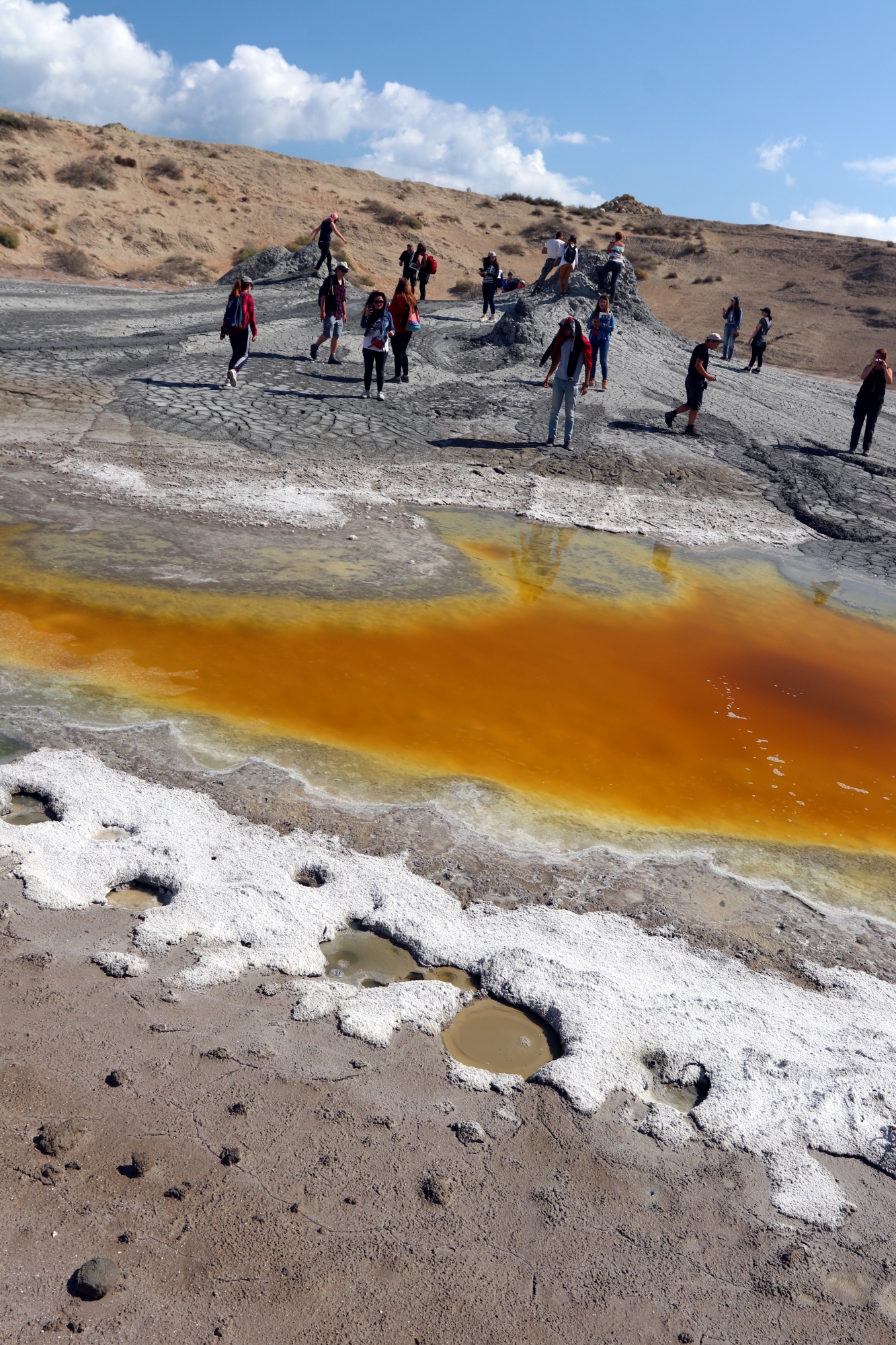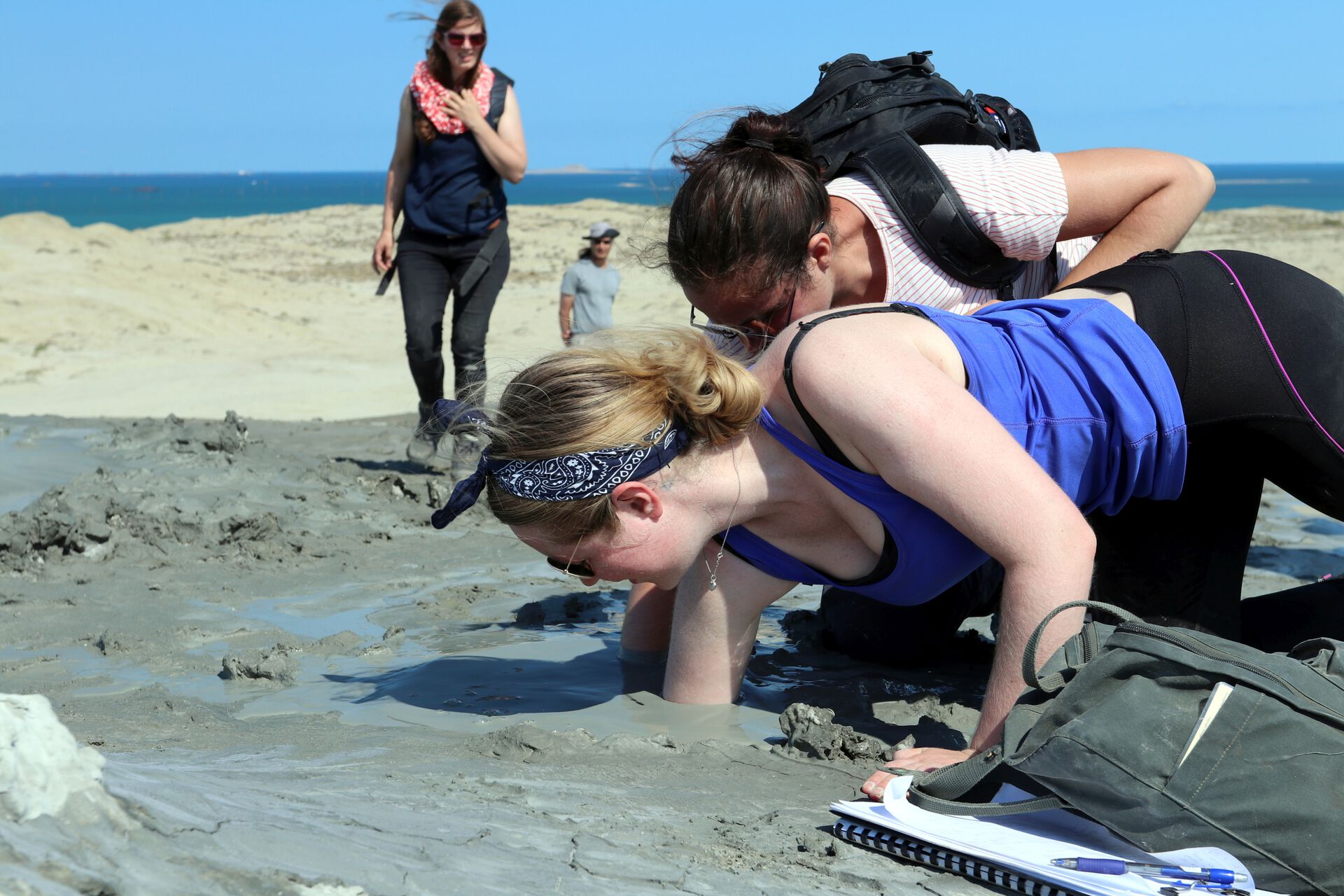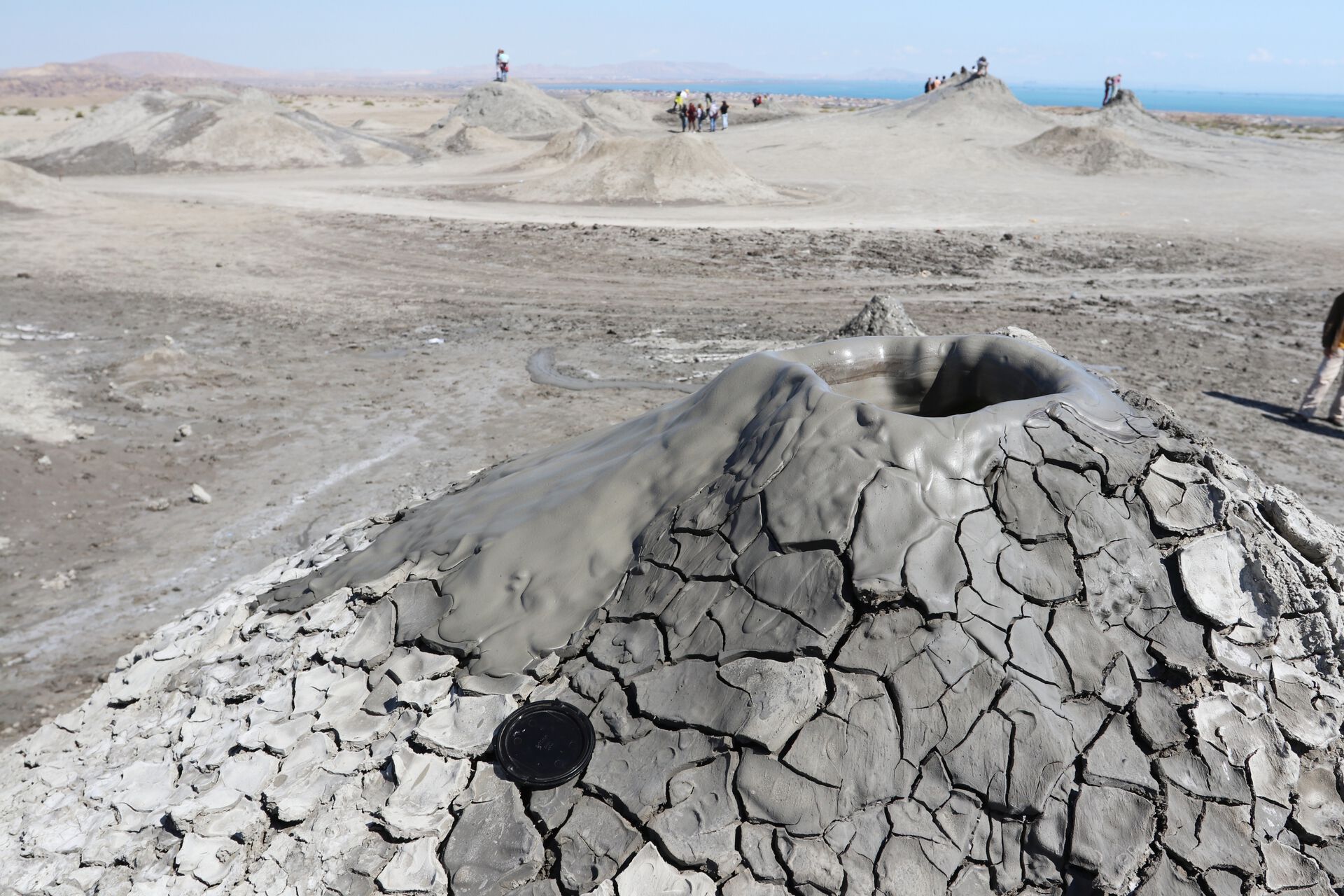The Azerbaijan Field Workshop on "Mud volcanism and Petroleum System" took place between the 12-16 September in Baku, Azerbaijan. The event was organized in cooperation with the HOTMUD partners of the Moscow State University and the Oil & Gas Institute (Azerbaijan National Academy of Sciences). The School was open for undergraduate students, PhD and scientists/specialists interested to learn more in the topic of sedimentary volcanism and related petroleum systems. More than 40 participants coming from 13 different Institutes and 10 different countries attended the whole course. More details about the programme of the summer school are included in a dedicated website.

The course included 12 initial lectures covering the general aspects of mud volcanism, their relationship to petroleum systems, description of the main tectonic settings, rheology and mechanisms of the mud flows, the coupling of mud volcanism and seismicity, new areas of exploration for mud volcanism, hybrid systems on Earth, and extra planetary sedimentary volcanism and laboratory simulations. This initial workshop gathered broad interest and was attended by numerous participants from various Instutes. The lectures took place at the Oil & Gas Institute (Azerbaijan National Academy of Sciences) in Baku. This was followed by 4 days of lectures and practical field exercises at various structures in the region around Baku. Here more specialized topics were also addressed with lectures conducted directly on the field. Such topics included, among others, tectonic control on the mud volcano systems, morphologies of the mud flows, sedimentary basins and petroleum systems. Morphology of mud volcanoes as observed on satellite imagery was compared with field observations. Techniques for fluid sampling and data collection (flux measurement, seismometry) were introduced with practical exercises directly on the field. During the last day, the students presented their data and achievements with dedicated workshop. A final report was among the requirements for the students participating to the school.

After the school, additional days have been dedicated for scientific research activities focusing on the study off the seven mud volcanoes in the Shamakhi region (west of Baku). Some of these structures were characterized by a recent eruptive activity occurring in 2019. Even in this case a multidisciplinary approach was applied in order to conduct a comprehensive study of the structures. Flux meter measurements throughout the surface of mud volcanoes were completed to estimate the amount of gas released; multispectral drone photogrammetry were acquired to distinguish areas of e.g. preferential seepage and/or to analyses the different mud flow morphologies; fluid sampling at active seepage sites was used to investigate the origin of the released gas; magneto-stratigraphy of different mud flows and events within the structures aimed to reconstruct the potential age of the events; active and passive seismic experiments were completed to investigate the periodicity of the activity of the seepage sites as well as the internal plumbing system of the active pools and gryphon sites. The acquired data are being processed at various laboratories and are promising for interesting publications.

